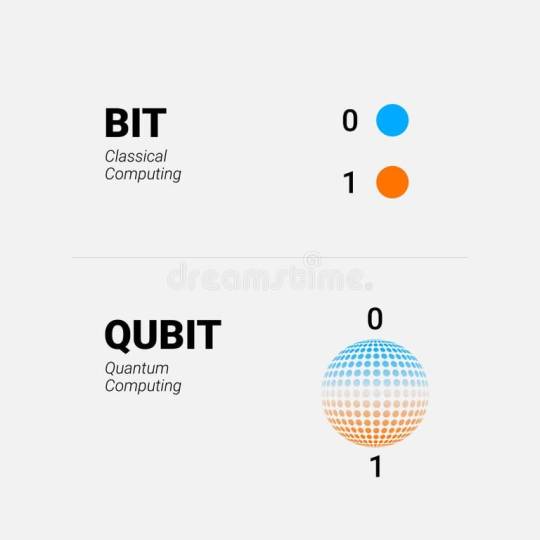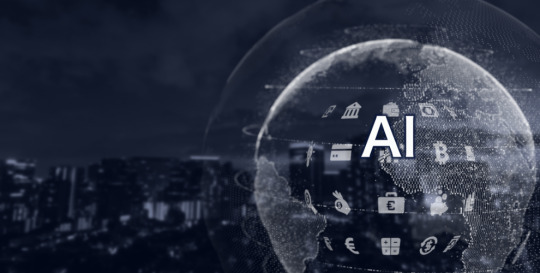#machine learning with quantum computing
Explore tagged Tumblr posts
Text
#quantum computing#quantum computer#unlocking the power of quantum computing#quantum computers#quantum computing explained#quantum physics#quantum mechanics#quantum computers explained#quantum#what is quantum computing#quantum technology#quantum supremacy#how quantum computers work#quantum computer explained#quantum computing documentary#quantum computing in tamil#quantum entanglement#quantum theory#machine learning with quantum computing
0 notes
Text

Physicists use machine learning to find out how layered gases and metals melt
In physics, a phase transition is a transformation of a substance from one form to another. They happen everywhere, from beneath the Earth's crust to the cores of distant stars, but the classic example is water transitioning from liquid to gas by boiling. Things get much more complex when physicists zoom in on the minuscule quantum realm or work with exotic matter. Understanding phase transitions rewards both increased knowledge of fundamental physics and future technological applications. Now researchers have found out how thin layers of noble gases like helium and metals like aluminum melt in confined spaces by topological excitations. In the study, the layers were confined between two graphene sheets at high pressures.
Read more.
#Materials Science#Science#Gases#Metals#Melting#Machine learning#Computational materials science#Phase transitions#Topology#Quantum mechanics#Physics#Layered materials#Graphene#Aalto University
10 notes
·
View notes
Text
Quantum Computing 101: What are Qubits?
Curious about quantum computing? Let's break it down!

🔍 What’s a Qubit? A qubit is the basic unit of quantum information. Unlike classical bits (0 or 1), qubits can be 0, 1, or both at the same time thanks to a phenomenon called superposition.
✨ Why Is This Cool?
Superposition: Allows qubits to explore many possibilities simultaneously.
Entanglement: Qubits can be linked, so the state of one affects the state of another, no matter the distance.
⚙️ In Action: This means quantum computers can tackle complex problems faster by processing a huge number of possibilities at once!
Follow for more insights on the future of tech! 🚀✨
Instagram: cs_learninghub YT: CS Learning Hub
#quantum computing#quantum#science#physics#computer science#bits#tumblr#aesthetic#studyblr#study#study motivation#qubits#machine learning#artificial intelligence#ai#ml#cs#learn#study blog
21 notes
·
View notes
Text
Quantum Computing: How Close Are We to a Technological Revolution?
1. Introduction Brief overview of quantum computing. Importance of quantum computing in the future of technology. 2. Understanding Quantum Computing Explanation of qubits, superposition, and entanglement. How quantum computing differs from classical computing. 3. The Current State of Quantum Computing Advances by major players (Google, IBM, Microsoft). Examples of quantum computing…

View On WordPress
#Artificial Intelligence#Climate Modeling#Economic Impact#Financial Modeling#Future of Computing#Future Technology#Global Tech Race#IBM#Machine Learning#NQM#Pharmaceutical Research#Qbits#Quantum Algorithms#Quantum Challenges#Quantum Computing#Quantum Cryptography#Quantum Hardware#Quantum Research#Quantum Supremacy#Tech Innovation#Tech Investments#Technology Trends
3 notes
·
View notes
Text
What is the Internet of Things (iot)?
The Internet of Things (IoT) is a network of physical devices, vehicles, home appliances, and other objects embedded with electronics, software, sensors, and connectivity. These devices can collect and exchange data using the internet. Imagine a world where your refrigerator orders groceries when it's running low, your thermostat adjusts the temperature based on your location, and your car can drive itself. This is the power of the internet of things (iot).
At WikiGlitz, we're passionate about exploring the endless possibilities of IoT. From smart homes to industrial automation, we'll keep you informed about the latest trends and innovations. Whether you're a tech enthusiast or a business professional, our content will help you understand the impact of IoT on your daily life and industry.
If you like to know more about IoT in the Automobile Industry: Driving Incredible Innovation then check out our in-depth article. Visit our official blog for the latest updates. Our Official Blog Site:https://wikiglitz.co/
#virtual reality#augmented reality#blockchain technology#blockchain#ai technology#technology#technology tips#chatgpt#gemini ai#cloud computing#machine learning#latest technology in artificial intelligence#future of artificial intelligence#renewable energy and sustainability#biotechnology and genetic engineering#quantum computing#virtual and augmented reality (vr/ar)#internet of things (iot)#blockchain and cryptocurrency#artificial intelligence#brain-computer interfaces#robotics#cybersecurity#big data and analytics#space exploration#materials science#nanotechnology#artificial general intelligence (agi)#brain-computer interfaces (bcis)
1 note
·
View note
Text
The Future of Technology: A Closer Look
In our previous exploration of the future of technology in 2043, we touched on several exciting advancements. Let’s delve deeper into each of these areas to better understand their implications and possibilities. 1. Artificial Intelligence (AI) and Machine Learning Personalized AI Companions In 2043, AI will not only be highly advanced but also deeply personalized. AI companions will know us…

View On WordPress
#artificial intelligence#biotech#future#Hot Topics#machine learning#quantum computing#science#techonology#virtual reality
2 notes
·
View notes
Text
Quantum AI: How Quantum Computing Will Reshape the Future of Artificial Intelligence
Artificial intelligence has taken the world by storm, revolutionizing everything from how we shop to how we drive, analyze data, and even interact with machines. But the AI we know today still runs on classical computers—machines that process information one bit at a time, constrained by traditional limitations in speed, energy, and capacity. That’s where quantum computing steps in, not just as…
#future of artificial intelligence#Quantum AI series#quantum computing and AI#quantum machine learning
0 notes
Text
How Quantum Computing Will Redefine AI and Machine Learning
Introducing AI, machine learning, and quantum computing into the mix has already begun to transform the face of technology to greater heights. With time, the effects of quantum computing will revolutionize AI and other areas of machine learning beyond our current comprehension. But what is quantum computing, and how will it change the future of artificial intelligence and machine learning?
Let us take you straight into this wonderful crossroads.
Understanding Quantum Computing and AI
Quantum computation is a revolutionary computing system that utilizes the concept of quantum mechanics to solve problems faster than the best traditional methods available to computers. While classical computing uses binary bits, 0 or 1, Quantum computing uses quantum bits or qubits that exist in more than one state. The capacity of quantum computers to simultaneously consider numerous calculations or datasets is called superposition and it is pivotal for all modern AI and machine learning algorithms.
At Guruface, our mission is to make advanced learning accessible to all, including the latest breakthroughs in technology like quantum AI. By exploring courses on quantum computing and AI, you can gain insights into how these technologies are shaping the future.
How Quantum Computing Impacts Machine Learning
One of AI’s categories is machine learning, which involves training a program to identify patterns and algorithms to make accurate predictions using data input. In contrast, current common machine learning model paradigms require intense computation for processing big data, especially with higher dimensionality. That is where quantum machine learning comes into the picture.
Key Benefits of Quantum Computing in Machine Learning
Accelerated Data Processing
With quantum computing, one can solve problems at a speed that would be impossible for any classical computer. This acceleration is significant when it comes to applications that need real-time analysis, be it an autonomous car, or a medical decision-supporting system, where AI and machine learning models can adapt to new information.
Enhanced Pattern Recognition
Quantum algorithms are built to look for a pattern in a set of data, which is critical to AI and machine learning algorithms such as image or voice recognition and recommendation.
Optimization and Problem Solving
Business optimization problems are well-solved by quantum computers and any problem that AI models would solve better with optimized solution—logistics, finance, prediction and analysis—are good candidates for quantum computing.
Deep Learning Advancements
Taking the Deep learning to the next level, quantum computing might help machine learning immensely. Quantum networks when evolving will allow the training of highly sophisticated models which require considerably lower computational power than at present.
Applications of Quantum Computing in AI and Machine Learning
Drug Discovery and Healthcare
The adoption of quantum computing is seen as having the ability to transform drug discovery through simulation of quantum structures. The quantum simulations of these compounds can be analyzed further by AI and machine learning algorithms to reveal new drug compounds faster and faster, bringing new treatments to the market.
Financial Modeling and Risk Analysis
In finance, quantum AI may help to make a significantly better prediction of risks. It enhances the brevity of performing historical computations and market trends with high efficiency in optimizing machine learning with intelligent computing in stock movements and risks.
Climate Modeling and Environmental Science
In finance, quantum AI may help to make a significantly better prediction of risks. It enhances the brevity of performing historical computations and market trends with high efficiency in optimizing machine learning with intelligent computing in stock movements and risks.
The Future of AI and Quantum Technology
AI technology depends on quantum computing as its next major frontier. With prosaic quantum-inspired algorithms, AI models will also adopt quantum enhanced algorithms for faster and improved analysis of big data opening new frontiers. At Guruface, we know the significance of updating ourselves with the latest trends in technology, such as quantum AI and machine learning. Through studying with us you will be prepared for changes in this fast-growing area by developing the knowledge and skills for it.
Why Now is the Time to Learn Machine Learning and Quantum Computing
Enterprises are rapidly finding a need for skills in artificial intelligence and machine learning due to massive enhancements in quantum computing. As for narrowing down the machine learning algorithms, developing new applications in AI and quantum technologies, the opportunity is limitless.
It is useful to learn Machine Learning and quantum computing whether you want to become a data scientist or you are already working as an AI developer. We have a selection of online courses on Guruface to help you get a better understanding of the jobs within the quantum technology and AI market guidance as well as the necessary skills to succeed in this industry of the future.
Conclusion
The combination of quantum computing and of artificial Intelligence will revolutionize industries and generate new business models. The technology in the field of quantum is advancing and that is good news for AI and machine learning because their advancement will increase their value. Get yourself in Guruface to read more on how quantum computing is going to revolutionize the advances in artificial intelligence.
0 notes
Text
How Big Data is Revolutionizing Algorithmic Trading | Bigul

Big data, AI, and real time processing are transforming algorithmic trading. Explore its future with quantum computing and blockchain for smarter decisions.
Read more..
#Big data#Artificial Intelligence#Algorithmic Trading#quantum computing#blockchain#Machine Learning#AI & Machine Learning#AI Machine Learning#algo trading#algo trading app#bigul#algo trading platform#algo trading india#algo trading strategies#bigul algo#free algo trading software#algorithm software for trading#finance#investment#investment platform#investments#investors#investment platform in india#algorithmic trading software free#algos#algorithm#best algo trading software#best algo trading software in india#best share trading app in india#best share trading app
0 notes
Text
Quantum Computing in Algorithmic Trading: Enter the Fast Lane of Finance!
Quantum Computing in Algorithmic Trading: Enter the Fast Lane of Finance! Hey there, digital financiers and algorithm aficionados! Buckle your seatbelts because we’re about to delve into the electrifying realm of quantum computing in algorithmic trading. This rollercoaster ride isn’t just for the tech-savvy—it’s for everyone who dreams of playing the stock market like a pro while sipping on a…

View On WordPress
#algorithmic trading#Data Processing#Financial Innovation#Investment Strategies#Machine Learning#Quantum Computing#Risk Assessment#Trade Execution
1 note
·
View note
Text
AI vs. AGI: What’s the Difference?

Artificial Intelligence (AI) is transforming industries, but its evolution is still in progress. Artificial General Intelligence (AGI) is the next frontier—capable of independent reasoning and learning. While AI excels at specific tasks, AGI aims to replicate human-like cognitive abilities. Understanding the key differences between AI and AGI is essential as technology advances toward a more autonomous future.
For a deeper insight into the role of AGI and its potential impact, check out this expert discussion.
What is Artificial Intelligence (AI)?
AI is designed for narrow applications, such as facial recognition, chatbots, and recommendation systems.
AI models like GPT-4 and DALL·E process data and generate outputs based on pre-programmed patterns.
AI lacks self-awareness and the ability to learn beyond its training data.
AI improves over time through machine learning algorithms.
Deep learning enables AI to recognize patterns and automate decision-making.
AI remains dependent on human intervention and structured data for continuous improvement.
Common applications of AI include:
Healthcare: AI-powered diagnostics and drug discovery.
Finance: Fraud detection and algorithmic trading.
Autonomous Vehicles: AI assists in self-driving technology but lacks human intuition.
What is Artificial General Intelligence (AGI)?
AGI aims to develop independent reasoning, decision-making, and adaptability.
Unlike AI, AGI would be able to understand and perform any intellectual task that a human can.
AGI requires self-learning mechanisms and consciousness-like functions.
AGI is designed to acquire knowledge across multiple domains without explicit programming.
It would be able to solve abstract problems and improve its performance independently.
AGI systems could modify and create new learning strategies beyond human input.
Potential applications of AGI include:
Advanced Scientific Research: AGI could revolutionize space exploration, climate science, and quantum computing.
Fully Autonomous Robots: Machines capable of human-like decision-making and reasoning.
Ethical & Philosophical Thinking: AGI could assist in policy-making and ethical dilemmas with real-world implications.
Key Differences Between AI & AGI
Scope:
AI is narrow and task-specific.
AGI has general intelligence across all tasks.
Learning:
AI uses supervised and reinforcement learning.
AGI learns independently without predefined rules.
Adaptability:
AI is limited to pre-defined parameters.
AGI can self-improve and apply learning to new situations.
Human Interaction:
AI supports human decision-making.
AGI can function without human intervention.
Real-World Application:
AI is used in chatbots, automation, and image processing.
AGI would enable autonomous research, problem-solving, and creativity.
Challenges in Achieving AGI
Ethical & Safety Concerns:
Uncontrolled AGI could lead to unpredictable consequences.
AI governance and regulation must ensure safe and responsible AI deployment.
Computational & Technological Barriers:
AGI requires exponentially more computing power than current AI.
Quantum computing advancements may be needed to accelerate AGI development.
The Role of Human Oversight:
Scientists must establish fail-safe measures to prevent AGI from surpassing human control.
Governments and AI research institutions must collaborate on AGI ethics and policies.
Tej Kohli’s Perspective on AGI Development
Tech investor and tech entrepreneur Tej Kohli believes AGI is the next major revolution in AI, but its development must be approached with caution and responsibility. His insights include:
AGI should complement, not replace, human intelligence.
Investments in AGI must prioritize ethical development to prevent risks.
Quantum computing and biotech will play a crucial role in shaping AGI’s capabilities.
Conclusion
AI is already transforming industries, but AGI represents the future of true machine intelligence. While AI remains task-specific, AGI aims to match human-level cognition and problem-solving. Achieving AGI will require breakthroughs in computing, ethics, and self-learning technologies.
#Artificial Intelligence#Tej Kohli#AI vs AGI#Machine Learning#Deep Learning#Future of AI#AGI Development#AI Ethics#Quantum Computing#Autonomous Systems#AI Innovation
0 notes
Text
Le Tendenze dell’Intelligenza Artificiale Oggi L’intelligenza artificiale (AI) sta trasformando il mondo: l’89% dei tool AI aziendali è fuori controllo (LayerX Security), esponendo a data breach e violazioni di compliance, mentre Nello Cristianini prevede un’AI sovrumana con AGI e ASI (il Mulino). La programmazione potrebbe sparire entro un anno, dice Anthropic (Anthropic), ma NextGenAI di OpenAI e il Work Trend Index di Microsoft vedono nuove opportunità. I dati sintetici, generati con GAN e SMOTE, rivoluzionano machine learning e privacy, mentre il quantum computing di D-Wave supera i limiti classici (Science). OpenEuroLLM (Cineca) punta sulla sovranità digitale con LLM open-source, ma i chatbot come Grok-3 mostrano hallucination (Tow Center). Tra bias, shadow AI e data center, serve un equilibrio: l’AI è un alleato, se guidata da CISO, auditing e strategie umane.
#AGI#AI#AI generativa#AI sovrumana#ASI#auditing#bias#chatbot#CISO#compliance#data breach#data center#dati sintetici#GAN#hallucination#Intelligenza Artificiale#LLM open-source#machine learning#NextGenAI#OpenEuroLLM#privacy#programmazione#quantum computing#ricerca accademica#shadow AI#sicurezza dei dati#SMOTE#sovranità digitale
1 note
·
View note
Text
Quantum Computing and Artificial Intelligence: The Future of Technology
Discover how quantum computing is revolutionizing artificial intelligence. Learn about Quantum AI, its applications, quantum algorithms, and how it can accelerate AGI development. Explore the future of AI powered by quantum computing.
Quantum computing and artificial intelligence (AI) are two of the most revolutionary technological advancements in modern times. AI has already made significant progress using classical computers, but its potential is hindered by the computational limits of traditional computing systems. Quantum computing, with its immense processing power, is expected to drive AI into new frontiers, enabling…
#AGI#AI and Quantum Computing#Artificial Intelligence#Future of AI#Machine Learning#Quantum AI#Quantum Algorithms#Quantum Computing#Quantum Decision Making#Quantum Game Theory#Quantum Mechanics#Quantum Neural Networks#Quantum Search#TensorFlow Quantum
0 notes
Text
10 Cutting-Edge Technology Trends Shaping 2025
In today’s rapidly evolving digital landscape, staying ahead means embracing transformative innovations that redefine every aspect of our lives. As we approach 2025, industries across the board are being revolutionized by a wave of advancements. The future is being molded by 10 Cutting-Edge Technology that not only streamline processes but also inspire creativity, enhance connectivity, and drive…
#10 Cutting-Edge Technology#2025 Tech Trends#5G#6G#AR#Artificial Intelligence#Autonomous Vehicles#Biotechnology#Blockchain#Cybersecurity#Decentralized Finance#Digital Transformation#Extended Reality#Future Technology#Green Technologies#Health Tech#Innovation#Internet of Things#IoT#Machine Learning#Next Generation Connectivity#Quantum Computing#Smart Transportation#Sustainable Energy#VR
0 notes
Text
Future of Artificial Intelligence
The Future of Artificial Intelligence: A Glimpse into Tomorrow
Artificial intelligence (AI) is rapidly transforming industries and reshaping our world. As WikiGlitz explores the future of AI, we delve into the exciting possibilities and challenges that lie ahead.
From self-driving cars and intelligent personal assistants to advanced medical diagnostics and personalized learning experiences, AI has the potential to revolutionize countless aspects of our lives. However, ethical considerations, job displacement, and the potential for misuse are important factors to consider.
As AI continues to evolve, WikiGlitz will keep you informed about the latest breakthroughs, applications, and implications for the future. Stay tuned for more insights into the exciting world of artificial intelligence. If you like to know more about the AI Breakthroughs: 6 Amazing Advances You Need to Know then check out our in-depth article. Visit our official blog for the latest updates.

#virtual reality#augmented reality#blockchain technology#blockchain#ai technology#technology#technology tips#chatgpt#gemini ai#cloud computing#machine learning#latest technology in artificial intelligence#future of artificial intelligence#renewable energy and sustainability#biotechnology and genetic engineering#quantum computing#virtual and augmented reality (vr/ar)#internet of things (iot)#blockchain and cryptocurrency#artificial intelligence#brain-computer interfaces#robotics#cybersecurity#big data and analytics#space exploration#materials science#nanotechnology#artificial general intelligence (agi)#brain-computer interfaces (bcis)
1 note
·
View note
Text
Quantum Computing: Unlocking a New Era of Innovation
Introduction Quantum computing, a revolutionary field in technology, is set to transform industries and redefine how we solve complex problems. Unlike classical computers, which rely on bits to process information as 0s and 1s, quantum computers leverage qubits, which can exist in multiple states simultaneously. This quantum superposition enables immense computational power, far beyond what traditional systems can achieve.
The Power of Quantum Computing Quantum computing offers unprecedented capabilities in areas such as:
Cryptography: Breaking traditional encryption methods and creating virtually unbreakable security protocols.
Optimization: Solving large-scale optimization problems, from supply chain logistics to financial modeling, in real-time.
Drug Discovery: Accelerating the development of new drugs by simulating molecular structures and interactions.
Climate Modeling: Enhancing the accuracy of climate predictions to better understand and address global warming.
AI and Quantum Computing The integration of AI with quantum computing is expected to create breakthroughs in data analysis, pattern recognition, and machine learning. By leveraging the processing power of quantum computers, AI algorithms can analyze vast datasets at speeds previously unimaginable. Explore how quantum computing is revolutionizing AI applications here.
Challenges in Quantum Computing Despite its promise, quantum computing faces several hurdles:
Hardware Stability: Quantum systems are extremely sensitive to environmental disturbances, leading to errors in calculations.
Scalability: Building larger and more stable quantum computers is a significant engineering challenge.
Cost: The high cost of developing and maintaining quantum computers limits accessibility.
The Future of Quantum Computing As researchers overcome these challenges, the potential applications of quantum computing continue to expand. In the near future, we can expect:
More robust quantum cryptography methods.
Enhanced AI models capable of solving previously insurmountable problems.
Greater insights into fundamental questions in physics, chemistry, and biology.
Conclusion Quantum computing is not just an incremental step in technology—it is a paradigm shift. As it continues to develop, it will open doors to innovations that were once thought impossible, shaping the future of industries and society.
If you have an active research ongoing kindly visit our journal website
0 notes